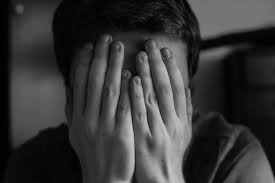 Regardless of one’s religious affiliation, the holiday season often inspires feelings of warmth, joy and belonging. But for some people, this time of year can evoke feelings of loneliness, stress and anxiety.
Regardless of one’s religious affiliation, the holiday season often inspires feelings of warmth, joy and belonging. But for some people, this time of year can evoke feelings of loneliness, stress and anxiety.
The holiday blues are a real phenomenon, but they likely have different effects than you might think. While the data are limited, there is some evidence about the causes and consequences of the holiday blues.
For starters, there is solid evidence that — despite long-held beliefs and often erroneous media coverage — the suicide rate in the United States does not spike around the holidays. According to the U.S. Center for Health Statistics, the suicide rate is highest between April and August. The months of November, December and January actually have the lowest daily suicide rates.
However low suicides rates don’t necessarily mean that the holidays blues aren’t a real phenomenon. While there are no systematic reviews about the increase of mental health problems around the holidays, there are findings from surveys that suggest people feel more stress, anxiety and depression in the period between Thanksgiving and New Year’s Day.
One survey by the American Psychological Association uncovered some interesting data about the holiday blues:
- While the majority of people in the survey reported feelings of happiness, love, and high spirits over the holidays, those emotions were often accompanied by feelings of fatigue, stress, irritability, bloating and sadness.
- Thirty-eight percent of people surveyed said their stress level increased during the holiday season. Participants listed the top stressors: lack of time, lack of money, commercialism, the pressures of gift-giving, and family gatherings.
- Surprisingly, 56 percent of respondents reported they experienced the most amount of stress at work. Only 29 percent experienced greater amounts of stress at home.
Another poll of more than 1,000 adults by the Principal Financial Group — a global investment company — found that 53 percent of people experience financial stress due to holiday spending, despite the fact more than half set budgets for their holiday spending this year.
While these data suggest that the holiday blues are a real phenomenon, it’s important to note that there are no systematic reviews or randomized controlled trials about mental health problems during the holiday season. The preliminary data indicate that this is a good topic for future research.
One final note: there is a difference between the holiday blues, which typically go away when the holiday season ends, and more severe depression, which lasts longer and interferes with activities of daily living. If the holiday season passes and you’re still feeling depressed or anxious, it’s best to consult with a medical professional.



Speak Your Mind